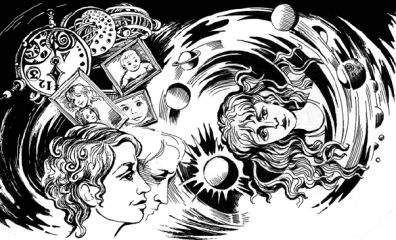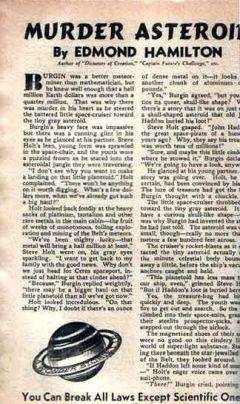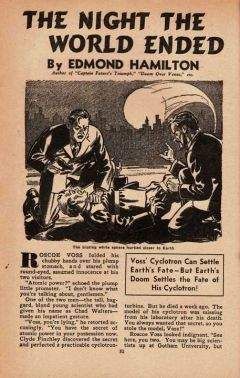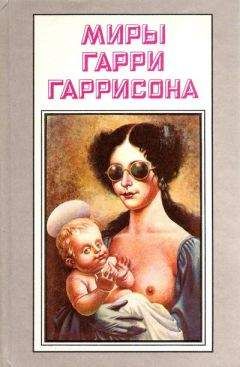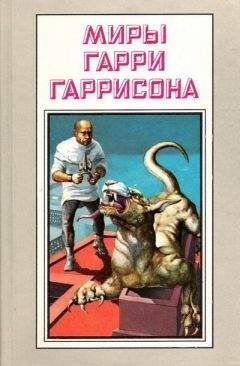Somerset Maugham - Sixty-Five Short Stories
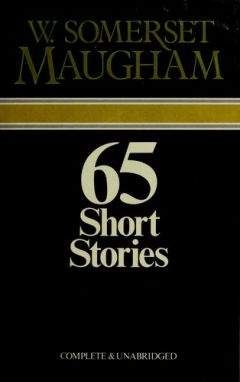
Скачивание начинается... Если скачивание не началось автоматически, пожалуйста нажмите на эту ссылку.
Жалоба
Напишите нам, и мы в срочном порядке примем меры.
Описание книги "Sixty-Five Short Stories"
Описание и краткое содержание "Sixty-Five Short Stories" читать бесплатно онлайн.
'There is another little bit of information that perhaps you'd be good enough to give me. What does one do to be a regular fellow?'
'I am afraid one can do nothing, Your Excellency,' replied Ashenden gravely. 'I think it is a gift of God.'
The light vanished from Sir Herbert's eyes, but his manner was slightly more urbane than when Ashenden was brought into the room. He rose and held out his hand.
'You did quite right to come and tell me this, Mr Ashenden. I have been very remiss. It is inexcusable on my part to offend that inoffensive old gentleman. But I will do my best to repair my error. I will call at the American Embassy this afternoon.'
'But not in too great state, sir, if I may venture a suggestion.'
The ambassador's eyes twinkled. Ashenden began to think him almost human.
'I can do nothing but in state, Mr Ashenden. That is one of the misfortunes of my temperament.' Then as Ashenden was leaving he added: 'Oh, by the way, I wonder if you'd care to come to dinner with me tomorrow night. Black tie. At eight-fifteen.'
He did not wait for Ashenden's assent, but took it for granted, and with a nod of dismissal sat down once more at his great writing-table.
Ashenden looked forward with misgiving to the dinner to which Sir Herbert Witherspoon had invited him. The black tie suggested a small party, perhaps only Lady Anne, the ambassador's wife, whom Ashenden did not know, or one or two young secretaries. It did not presage a hilarious evening. It was possible that they might play bridge after dinner, but Ashenden knew that professional diplomats do not play bridge with skill: it may be supposed that they find it difficult to bend their great minds to the triviality of a parlour game. On the other hand he was interested to see a little more of the ambassador in circumstances of less formality. For it was evident that Sir Herbert Witherspoon was not an ordinary person. He was in appearance and manner a perfect specimen of his class and it is always entertaining to come upon good examples of a well-known type. He was exactly what you expected an ambassador to be. If any of his characteristics had been ever so slightly exaggerated he would have been a caricature. He escaped being ridiculous only by a hair's breadth and you watched him with a kind of breathlessness as you might watch a tight-rope dancer doing perilous feats at a dizzy height. He was certainly a man of character. His rise in the diplomatic service had been rapid and though doubtless it helped him to be connected by marriage with powerful families his rise had been due chiefly to his merit. He knew how to be determined when determination was necessary and conciliatory when conciliation was opportune. His manners were perfect; he could speak half a dozen languages with ease and accuracy; he had a clear and logical brain. He was never afraid to think out his thoughts to the end, but was wise enough to suit his actions to the exigencies of the situation. He had reached his post at X at the early age of fifty-three and had borne himself in the exceedingly difficult conditions created by the war and contending parties within the state with tact, confidence, and once at least with courage. For on one occasion, a riot having arisen, a band of revolutionaries forced their way into the British Embassy and Sir Herbert from the head of his stairs had harangued them and notwithstanding revolvers flourished at him had persuaded them to go to their homes. He would end his career in Paris. That was evident. He was a man whom you could not but admire but whom it was not easy to like. He was a diplomat of the school of those Victorian ambassadors to whom could confidently be entrusted great affairs and whose self-reliance, sometimes it must be admitted tinctured with arrogance, was justified by its results.
When Ashenden drove up to the doors of the Embassy they were flung open and he was received by a stout and dignified English butler and three footmen. He was ushered up that magnificent flight of stairs on which had taken place the dramatic incident just related and shown into an immense room, dimly lit with shaded lamps, in which at the first glance he caught sight of large pieces of stately furniture and over the chimney-piece an immense portrait in coronation robes of King George IV. But there was a bright fire blazing on the hearth and from a deep sofa by the side of it his host, as his name was announced, slowly rose. Sir Herbert looked very elegant as he came towards him. He wore his dinner jacket, the most difficult costume for a man to look well in, with notable distinction.
'My wife has gone to a concert, but she'll come in later. She wants to make your acquaintance. I haven't asked anybody else. I thought I would give myself the pleasure of enjoying your company en tête–à –tête.'
Ashenden murmured a civil rejoinder, but his heart sank. He wondered how he was going to pass at least a couple of hours alone with this man who made him he was bound to confess, feel extremely shy.
The door was opened again and the butler and a footman entered bearing very heavy silver salvers.
'I always have a glass of sherry before my dinner,' said the ambassador, 'but in case you have acquired the barbarous custom of drinking cocktails I can offer you what I believe is called a dry Martini.'
Shy though he might be, Ashenden was not going to give in to this sort of thing with complete tameness.
'I move with the times,' he replied. 'To drink a glass of sherry when you can get a dry Martini is like taking a stage-coach when you can travel by the Orient Express.'
A little desultory conversation after this fashion was interrupted by the throwing open of two great doors and the announcement that His Excellency's dinner was served. They went into the dining-room. This was a vast apartment in which sixty people might have comfortably dined, but there was now only a small round table in it so that Sir Herbert and Ashenden sat intimately. There was an immense mahogany sideboard on which were massive pieces of gold plate, and above it, facing Ashenden, was a fine picture by Canaletto. Over the chimney-piece was a threequarter-length portrait of Queen Victoria as a girl with a little gold crown on her small, prim head. Dinner was served by the corpulent butler and the three very tall English footmen. Ashenden had the impression that the ambassador enjoyed in his well-bred way the sensation of ignoring the pomp in which he lived. They might have been dining in one of the great country houses of England; it was a ceremony they performed, sumptuous without ostentation, and it was saved from a trifling absurdity only because it was in a tradition; but the experience gained for Ashenden a kind of savour from the thought that dwelt with him that on the other side of the wall was a restless, turbulent population that might at any moment break into bloody revolution, while not two hundred miles away men in the trenches were sheltering in their dug-outs from the bitter cold and the pitiless bombardment.
Ashenden need not have feared that the conversation would proceed with difficulty and the notion he had had that Sir Herbert had asked him in order to question him about his secret mission was quickly dispelled. The ambassador behaved to him as though he were a travelling Englishman who had presented a letter of introduction and to whom he desired to show civility. You would hardly have thought that a war was raging, for he made to it only such references as showed that he was not deliberately avoiding a distressing subject. He spoke of art and literature, proving himself to be a diligent reader of catholic taste, and when Ashenden talked to him, from personal acquaintance, of the writers whom Sir Herbert knew only through their works, he listened with the friendly condescension which the great ones of the earth affect towards the artist. (Sometimes, however, they paint a picture or write a book, and then the artist gets a little of his own back.) He mentioned in passing a character in one of Ashenden's novels, but did not make any other reference to the fact that his guest was a writer. Ashenden admired his urbanity. He disliked people to talk to him of his books, in which indeed, once written, he took small interest, and it made him self-conscious to be praised or blamed to his face. Sir Herbert Witherspoon flattered his self-esteem by showing that he had read him, but spared his delicacy by withholding his opinion of what he had read. He spoke too of the various countries in which during his career he had been stationed and of various persons, in London and elsewhere, that he and Ashenden knew in common. He talked well, not without a pleasant irony that might very well have passed for humour, and intelligently. Ashenden did not find his dinner dull, but neither did he find it exhilarating. He would have been more interested if the ambassador had not so invariably said the right, wise, and sensible thing upon every topic that was introduced. Ashenden was finding it something of an effort to keep up with this distinction of mind and he would have liked the conversation to get into its shirt-sleeves, so to speak, and put its feet on the table. But of this there was no chance and Ashenden once or twice caught himself wondering how soon after dinner he could decently take his leave. At eleven he had an appointment with Herbartus at the Hotel de Paris.
The dinner came to an end and coffee was brought in. Sir Herbert knew good food and good wine and Ashenden was obliged to admit that he had fared excellently. Liqueurs were served with the coffee, and Ashenden took a glass of brandy.
'I have some very old Benedictine,' said the ambassador. 'Won't you try it?'
'To tell you the honest truth I think brandy is the only liqueur worth drinking.'
'I'm not sure that I don't agree with you. But in that case I must give you something better than that.'
He gave an order to the butler, who presently brought in a cobwebbed bottle and two enormous glasses.
'I don't really want to boast,' said the ambassador as he watched the butler pour the golden liquid into Ashenden's glass, 'but I venture to think that if you like brandy you'll like this. I got it when I was counsellor for a short time in Paris.'
'I've had a good deal to do lately with one of your successors then.'
'By ring?'
'Yes.'
'What do you think of the brandy?'
'I think it's marvellous.'
'And of Byring?'
The question came so oddly on the top of the other that it sounded faintly comic.
'Oh, I think he's a damned fool.'
Sir Herbert leaned back in his chair, holding the huge glass with both hands in order to bring out the aroma, and looked slowly round the stately and spacious room. The table had been cleared of superfluous things. There was a bowl of roses between Ashenden and his host. The servants switched off the electric light as they finally left the room and it was lit now only by the candles that were on the table and by the fire. Notwithstanding its size it had an air of sober comfort. The ambassador's eyes rested on the really distinguished portrait of Queen Victoria that hung over the chimney-piece.
'I wonder,' he said at last.
'He'll have to leave the diplomatic service.'
'I'm afraid so.'
Ashenden gave him a quick glance of inquiry. He was the last man from whom he would have expected sympathy for Byring.
'Yes, in the circumstances,' he proceeded, 'I suppose it's inevitable that he should leave the service. I'm sorry. He's an able fellow and he'll be missed. I think he had a career before him.'
'Yes, that is what I've heard. I'm told that at the F.O. they thought very highly of him.'
'He has many of the gifts that are useful in this rather dreary trade,' said the ambassador, with a slight smile, in his cold and judicial manner. 'He's handsome, he's a gentleman, he has nice manners, he speaks excellent French, and he has a good head on his shoulders. He'd have done well.'
'It seems a pity that he should waste such golden opportunities.'
'I understand he's going into the wine business at the end of the war. Oddly enough he's going to represent the very firm from whom I got this brandy.'
Sir Herbert raised the glass to his nose and inhaled the fragrance. Then he looked at Ashenden. He had a way of looking at people, when he was thinking of something else perhaps, that suggested that he thought them somewhat peculiar but rather disgusting insects.
'Have you ever seen the woman?' he asked.
'I dined with her and Byring at Larue's.'
'How very interesting. What is she like?'
'Charming.'
Ashenden tried to describe her to his host, but meanwhile with another part of his mind he recollected the impression she had made on him at the restaurant when Byring had introduced him to her. He had been not a little interested to meet a woman of whom for some years he had heard so much. She called herself Rose Auburn, but what her real name was few knew. She had gone to Paris originally as one of a troupe of dancers, called the Glad Girls, who performed at the Moulin Rouge, but her astonishing beauty had soon caused her to be noticed and a wealthy French manufacturer fell in love with her. He gave her a house and loaded her with jewels, but could not long meet the demands she made upon him, and she passed in rapid succession from lover to lover. She became in a short time the best-known courtesan in France. Her expenditure was prodigal and she ruined her admirers with cynical unconcern. The richest men found themselves unable to cope with her extravagance. Ashenden, before the war, had seen her once at Monte Carlo lose a hundred and eighty thousand francs at a sitting and that then was an important sum. She sat at the big table, surrounded by curious onlookers, throwing down packets of thousand-franc notes with a self-possession that would have been admirable if it had been her own money that she was losing.
When Ashenden met her she had been leading this riotous life, dancing and gambling all night, racing most afternoons a week, for twelve or thirteen years and she was no longer very young; but there was hardly a line on that lovely brow, scarcely a crow's-foot round those liquid eyes, to betray the fact. The most astonishing thing about her was that notwithstanding this feverish and unending round of senseless debauchery she had preserved an air of virginity. Of course she cultivated the type. She had an exquisitely graceful and slender figure, and her innumerable frocks were always made with a perfect simplicity. Her brown hair was very plainly done. With her oval face, charming little nose, and large blue eyes she had all the air of one or other of Anthony Trollope's charming heroines. It was the keepsake style raised to such rareness that it made you catch your breath. She had a lovely skin, very white and red, and if she painted it was not from necessity but from wantonness. She irradiated a sort of dewy innocence that was as attractive as it was unexpected.
Ashenden had heard of course that Byring for a year or more had been her lover. Her notoriety was such that a hard light of publicity was shed on everyone with whom she had any affair, but in this instance the gossips had more to say than usual because Byring had no money to speak of and Rose Auburn had never been known to grant her favours for anything that did not in some way represent hard cash. Was it possible that she loved him? It seemed incredible and yet what other explanation was there? Byring was a young man with whom any woman might have fallen in love. He was somewhere in the thirties, very tall and good-looking with a singular charm of manner and of an appearance so debonair that people turned round in the street to look at him; but unlike most handsome men he seemed entirely unaware of the impression he created. When it became known that Byring was the amant de coeur (a prettier phrase than our English fancy man) of this famous harlot he became an object of admiration to many women and of envy to many men; but when a rumour spread abroad that he was going to marry her consternation seized his friends and ribald laughter everyone else. It became known that Byring's chief had asked him if it was true and he had admitted it. Pressure was put upon him to relinquish a plan that could only end in disaster. It was pointed out to him that the wife of a diplomat has social obligations that Rose Auburn could not fulfil. Byring replied that he was prepared to resign his post whenever by so doing he would not cause inconvenience. He brushed aside every expostulation and every argument; he was determined to marry.
Подписывайтесь на наши страницы в социальных сетях.
Будьте в курсе последних книжных новинок, комментируйте, обсуждайте. Мы ждём Вас!
Похожие книги на "Sixty-Five Short Stories"
Книги похожие на "Sixty-Five Short Stories" читать онлайн или скачать бесплатно полные версии.
Мы рекомендуем Вам зарегистрироваться либо войти на сайт под своим именем.
Отзывы о "Somerset Maugham - Sixty-Five Short Stories"
Отзывы читателей о книге "Sixty-Five Short Stories", комментарии и мнения людей о произведении.






